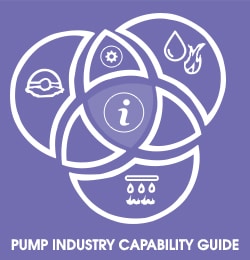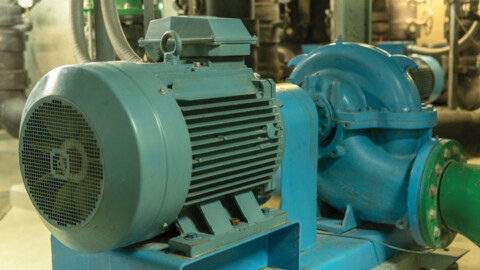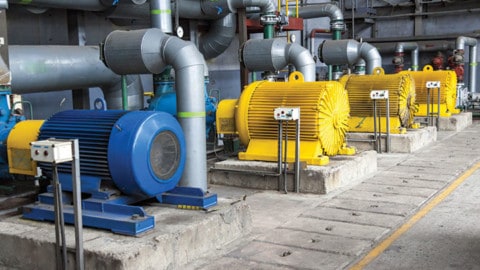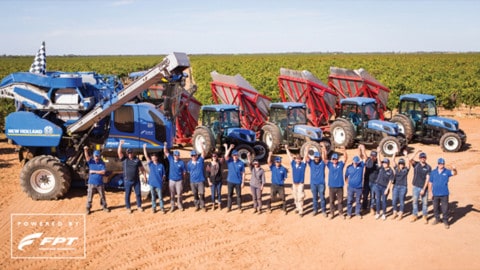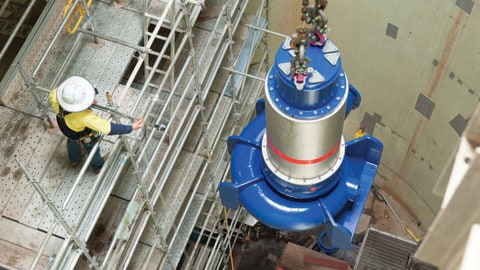The pump industry relies on expertise from a large and varied range of specialists, from experts in particular pump types to those with an intimate understanding of pump reliability; and from researchers who delve into the particulars of pump curves to experts in pump efficiency. To draw upon the wealth of expert knowledge the Australian pump industry has to offer, Pump Industry has established a panel of experts to answer all your pumping questions.
This edition of Ask an Expert will look at using progressive cavity pumps in the food industry to take care of the entire process: from gentle food handling to efficient food waste removal.
Q: Centrifugal pumps are the most widely used pump type in the food industry. Why should I switch to progressive cavity (PC) pumps instead?
Answer: Centrifugal pumps convey liquids with relatively low viscosities, but at higher viscosities they are no longer an economical option since the pump’s efficiency greatly decreases.
Here is where PC pumps shine and not only for transport, but also precise dosing of food additives.
PC pump manufacturers offer a versatile, modular range of food pumps. The pumps convey delicate ingredients and components that are difficult to work with, due to high viscosity, the presence of soft solids or shear sensitivity.
Another essential feature is the gentle and non-destructive conveying of whole fruits and other food with minimal pulsation.
PC dosing pumps are especially valuable to the industry because the minimal pulsation delivery enables stable volume flow. This makes dosing very small quantities such as additives, enzymes or flavours possible and saves costs.
Manufacturers also make sure to offer PC food pumps that meet the highest hygiene and safety standards of the food and beverage industry. The pump design can include high-quality surfaces of housing walls and rotating internal parts to guarantee residue-free cleaning.
Often the pump housing is constructed free of dead space to prevent buildup of residue. The pumps can be certified according to strict international guidelines such as EHEDG, FDA or 3-A Sanitary Standards while also offering CIP and SIP surface cleaning of pipes, machinery and equipment.

Example of progressive cavity pump with stringent EHEDG certification, which to date only one PC manufacturer has obtained
Q: Tote bins, flumes, and air and vacuum systems are traditional methods for removing food waste. Is there a better option available?
A: Most food plants generate by-products, particularly if engaged in primary processing; for example, converting raw materials such as fruit, vegetables, meat or poultry into finished products.
Processors must remove this waste from their production areas as efficiently and hygienically as possible. Green waste needs to be reduced and compressed, and the highest residual value of by-products preserved, particularly if undergoing biogas conversion.
In treating food waste, all the traditional methods incur high running costs in the form of manual labour, energy use or water treatment. With progressive cavity (PC) pumps, there is a better alternative.
PC pumps have low energy requirements compared to air or vacuum systems and require no additional water to function efficiently even when handling high dry solids content.
Their versatility and modular design enables them to cope with most food waste products, delivering cost savings and improved hygiene for today’s food processors.
They can also reduce the waste volume from fruit residue by up to two-thirds, saving factories considerable energy and disposal costs.
Using enclosed piped systems to remove solid waste from both high care and low risk areas, means improved hygiene standards, better efficiency and increased automation in waste removal.
PC pumps are also available with integrated knives or a grinder for additional chopping of by-products to lower the volume of waste. One system handles all the necessary tasks for food waste processing.

Wide-throat PC pump with cutting knives, ideal for conveying and shredding food waste with little or no flowability
About the author
 Peter Vila, Managing Director of SEEPEX Australia, is a progressive cavity pump expert. He has been involved with pumps for over 35 years. Peter spent the first five years repairing pumps and the following 30 years in technical sales, 15 of which have been with SEEPEX progressive cavity pumps.
Peter Vila, Managing Director of SEEPEX Australia, is a progressive cavity pump expert. He has been involved with pumps for over 35 years. Peter spent the first five years repairing pumps and the following 30 years in technical sales, 15 of which have been with SEEPEX progressive cavity pumps.
For more information on progressive cavity pumps, please contact SEEPEX Australia on (02) 4355 4500 or at [email protected].





